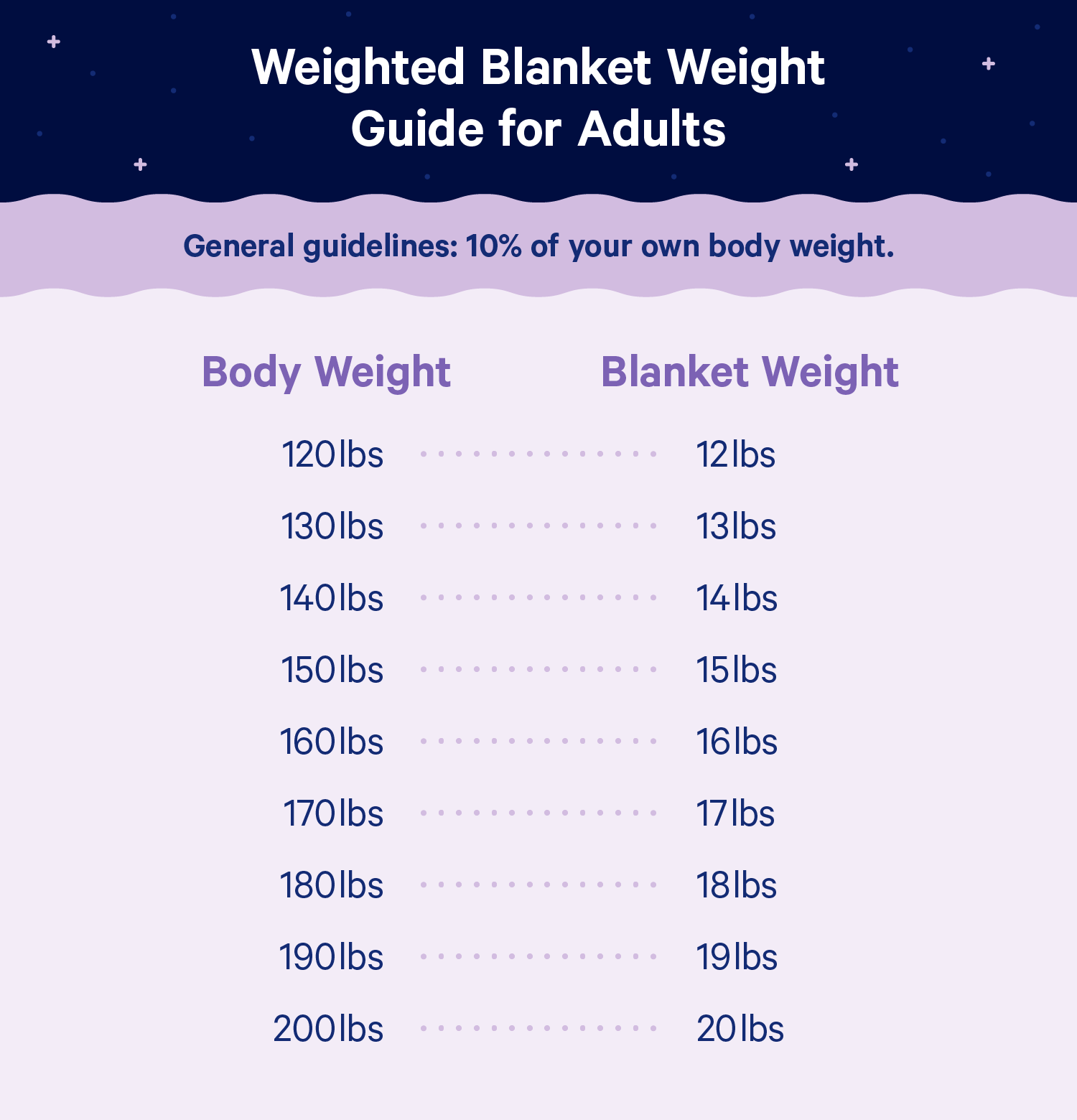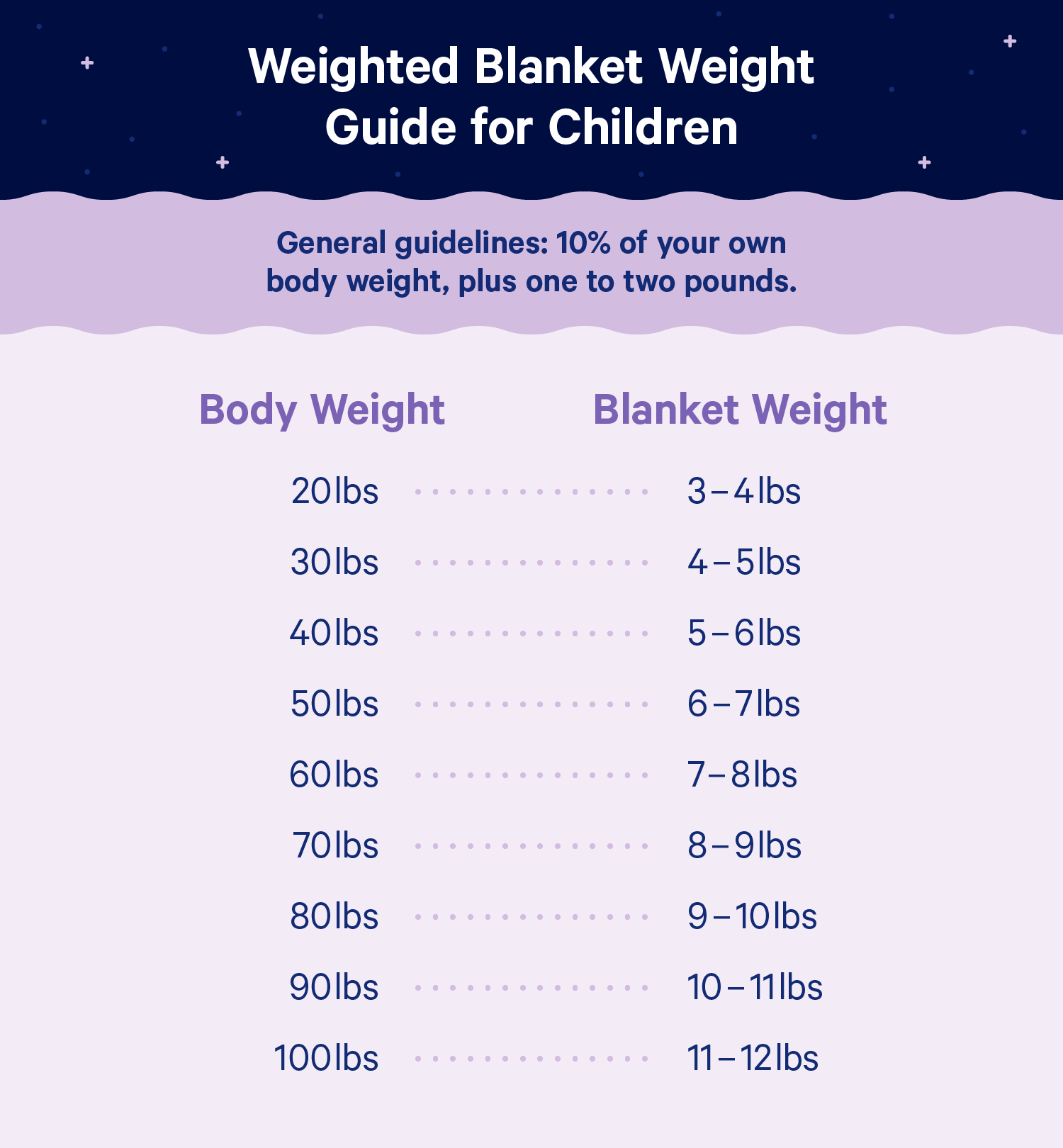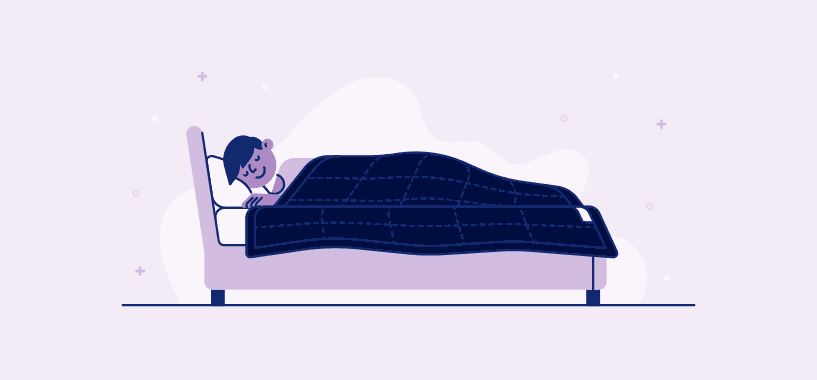The search for a good night’s sleep has become something of a fixation. Maybe it’s because many of us always seem to go without.
According to the Centers for Disease Control and Prevention (CDC), about 70 millionTrusted Source Americans deal with chronic sleep issues.
But before turning to sleep aids and medications, a weighted blanket might actually be the answer.
We break down the best way to help you select the perfect weighted blanket to try to correct a poor night’s sleep. Plus, get a list of our top picks.
Who can benefit from weighted blankets?
Weighted blankets can be beneficial for sleep disorders of any kind. Though studies are limited, they may help with insomnia, falling asleep, and staying asleep.
“Weighted blankets have been quite the phenomenon over the last year or so,” said Bill Fish, a certified sleep science coach. “People are beginning to understand the benefits of using a weighted blanket to set themselves up to get the recommended 7 to 9 hours of quality sleep on a nightly basis.”
According to a study from 2020Trusted Source, evidence suggests that weighted blankets can help reduce anxiety in people undergoing chemotherapy.
Additionally, a randomized controlled study from 2020Trusted Source found that weighted blankets were a safe and effective way to help with insomnia in people with various mental health conditions including bipolar disorder, depression, anxiety, and attention deficit hyperactivity disorder.
Why weighted blankets work
Laura LeMond, owner of Mosaic Weighted Blankets, believes that weighted blankets are increasingly popular because you learn to relax under the weight naturally and fall asleep more quickly. Your blanket can become a natural, comforting sleep solution.
A 2015 study noted showed that 31 participants who slept with weighted blankets had a calmer night’s sleep, with less tossing and turning. The subjects believed that using the blanket provided them with a more comfortable, better quality, and more secure sleep.
How to pick the perfect weighted blanket for you
Weighted blankets weigh anywhere from 5 to 30 pounds. A wide range of weights are available, but how do you know which is right for you?
Your own body size will help you determine the right blanket weight.
The general guideline? 10 percent of your own body weight
Both Fish and LeMond agree that the ideal weighted blanket is 10 percent of your body weight so that it fits your frame. For children or older adults, the formula is 10 percent of body weight plus 1 to 2 pounds.
That said, if you’re finding it difficult to roll over under the blanket and feel like you’re trapped, going lighter is better. However, going lighter than 10 percent of your body weight may not have the same benefits.
“By utilizing a blanket that is roughly 10 percent of your body weight, you feel like the blanket is hugging your body, giving you a sense of calmness, which can reduce stress, as well as help you to stay asleep so your body can go through the necessary stages of sleep to allow you to wake up fully rested,” notes Fish.
What if I’m in between the standard sizes that weighted blankets come in?
While buying a blanket that’s 10 percent of your body weight is a good rule of thumb, selecting the right weighted blanket can be highly personalized.
For example, if you fall between standard weights of blankets (typically 10, 12, 15, 17, and 20 pounds) and are unsure of whether to size up or down, experts typically recommend adding 1 to 2 pounds. But, ultimately, it’s a matter of your preference.
Additionally, one small study conducted in 2006 using 30-pound blankets suggests that more than 10 percent of body weight can be both comfortable and calming.
Is my height a factor?
Blankets come in different dimensions as well. To choose your ideal dimensions, consider the size of your bed and also your height. Height is not as important as weight, but you do want to feel covered and comfortable. Buy a blanket that’s the same size or slightly larger than you.
How we chose the best weighted blankets
If you’re looking for a place to start, we found a few options that we think are good picks. Here are the criteria we used to select the best weighted blankets:
Customer reviews. All our picks made a good impression on customers and have very positive reviews.
Brand reputation. We focused on brands with solid reputations.
Weight options. Our list includes a variety of blanket weights to suit many needs.
Blanket variety. We included blankets made with a variety of materials and at a variety of price points, from budget picks to premium options.
A weighted blanket is a heavy blanket that is meant to have a calming effect on the body when you go to sleep. Weighted blankets have grown in popularity in recent years as a form of therapy. They can mimic the feeling of a hug — causing a surge of feel-good hormones like oxytocin and serotonin.
Weighted blankets are also called “anxiety blankets” because of the calming effects they can have on those that experience sleep anxiety and other sleep disorders. They can help a variety of different people who experience any of the below symptoms:
- PTSD
- Anxiety
- Insomnia
- ADHD
- Restless leg syndrome
- Depression
- Autism
Weighted blankets come in a variety of weights from five to 30 pounds. You may be wondering, how heavy should a weighted blanket be?
We recommend choosing a weighted blanket that is 10 percent of your body weight for optimal comfort. For more information on how to choose the perfect weighted blanket for you, read our buying guide below.
The Casper Weighted Blanket is designed to hug your body and create a cozy, calming feel. It has quilted channels that keep weight evenly distributed and includes breathable cotton that will circulate air away from your body, keeping you cool.
Weighted Blanket Weight Guide
Weighted blankets are filled with plastic poly pellets, steel shot beads, and micro glass beads. They typically weigh around 15 pounds. However, it’s recommended to choose one that will work the best for your body weight, size, and age.
How Heavy Should a Weighted Blanket be for Adults?
Determining how heavy your weighted blanket should be is fairly easy. The general weighted blanket guidelines for adults is 10 percent of your own body weight.
Usually, a weighted blanket should be between 12 to 20 pounds for adults. This ensures that the blanket creates a hugging feeling on your body — causing a sense of calmness, reducing stress, and helping you fall and stay asleep more easily. The perfect sized weighted blanket will allow your body to achieve deep sleep, so you wake up feeling well-rested.

- 120 pounds = 12lb blanket
- 130 pounds = 13lb blanket
- 140 pounds = 14lb blanket
- 150 pounds = 15lb blanket
- 160 pounds = 16lb blanket
- 170 pounds = 17lb blanket
- 180 pounds = 18lb blanket
- 190 pounds = 19lb blanket
- 200 pounds = 20lb blanket
You get the idea. Remember that there are always exceptions to every rule. If you don’t feel comfortable with the weighted blanket you have, look for something a little lighter and vice versa. However, it may not provide the same benefits.
What if you fall between two weight recommendations? Many experts recommend rounding up and adding one to two pounds. One study found that more than 10 percent of your body weight can actually be quite calming. However, it’s always best to use your best judgment and choose your personal preference.
You’ll also want to consider your body type. If you’re super petite, you may want to opt for a weighted blanket that is on the lighter side (one to two pounds lighter than the recommended weight). If you’re a bit heavier, choose a heavier blanket.
How Heavy Should a Weighted Blanket be for a Child?
The general weighted blanket recommendation for children is 10 percent of your body weight, plus one to two pounds. It’s important to choose the right weight for children so that they stay safe and get the most benefits.

- 20 pounds = 3–4lb blanket
- 30 pounds = 4–5lb blanket
- 40 pounds = 5–6lb blanket
- 50 pounds = 6–7lb blanket
- 60 pounds = 7–8lb blanket
- 70 pounds = 8–9lb blanket
- 80 pounds = 9–10lb blanket
- 90 pounds = 10–11lb blanket
Generally, a weighted blanket that is 10 to 25 pounds is too heavy for very young children, and it should go without saying that weighted blankets should be avoided for babies. If you have a child under five years of age, consult a doctor before using a weighted blanket.
How Heavy Should a Weighted Blanket be for Older Adults?
The same guideline you use for kids, should be used for older adults as well: 10 percent of your body weight, plus one to two pounds.
As you get older, your age can cause problems with your sleep. If you’re an older adult with respiratory problems or other health conditions like sleep apnea, a blanket that is 10 to 25 pounds may be too dangerous. Always consult your doctor beforehand to make sure you’re choosing the correct size for you.
Can a Weighted Blanket be Too Heavy?
Yes, a weighted blanket can be too heavy if you don’t get the correct size. Weighted blankets that are 35 pounds and over should generally be avoided. If you feel like you can’t move under your blanket, look for one that is lighter.
What About Height?
Height doesn’t play as large of a role as your body weight does in what weight of blanket you should get. It matters more for determining overall size. Just like when choosing the size of your bed, you’ll want a blanket that will work for your height.

If you’re over six feet tall, a twin-sized blanket will likely be too small for you. If you’re on the shorter side, a king-sized blanket would likely be too heavy for you. A good rule of thumb is to choose a weighted blanket that is the same size as you or slightly larger. You want a weighted blanket that will cover your entire body.
How to Choose a Weighted Blanket: General Guidelines
If you can, it’s important to choose a weighted blanket that is 10 percent of your body weight or one to two pounds heavier. This ensures you’re getting the most out of your blanket and experiencing the deep touch pressure that will leave you calm and relaxed.
It’s important to note that if you’re someone that sleeps hot, a weighted blanket will likely make you sleep even hotter. If you can, look for one that has moisture-wicking properties and find other creative ways to stay cool at night.
Weighted blankets have a plethora of benefits that can keep you calm and relaxed while falling asleep. If you’re someone who experiences anxiety, restless leg syndrome, or insomnia, or you just love to be as snug as a bug in a rug, then you’ll likely love the effects of a weighted blanket.

